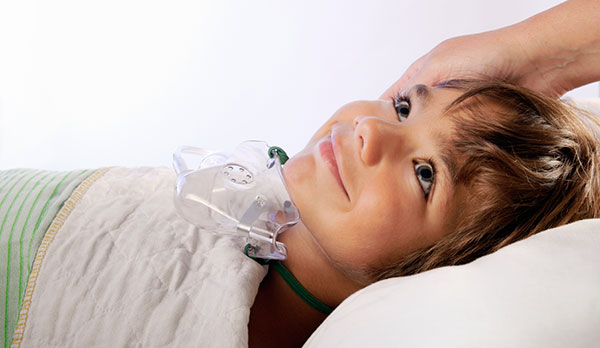Hi everyone!
Every parent or caregiver at some point will be upset by the suffering of their teething baby. From 6 months to age 3 is a time of fast physical development in a baby’s life. During this time parents, caregivers and well-meaning grandparents are often baffled about the best way to relieve their baby’s sore and swelling gums.

One method is to use a numbing agent or oral topical anesthetic. But recent FDA warnings have expressed how potentially harmful these drugs can be to infants. Previously, the FDA had released a warning against using benzocaine, a local anesthetic, to soothe a baby’s sore gums. It’s found in over-the-counter gels and liquids like Anbesol, Hurricaine, Orajel, Baby Orajel, and with some Orabases.
Using these medications can lead to a rare, yet a serious condition called methemoglobinemia. This condition reduces the amount of oxygen carried through the blood stream, and in severe cases can cause death in children under the age of 2!
The latest warning is about prescription drugs containing viscous lidocaine. Viscous lidocaine is a prescription local anesthetic and is often used to help people going through chemotherapy or radiation therapy who are in pain and unable to eat because of mouth ulcers and sores. So parents may have it on hand because they received a prescription for an adult condition that has resulted in mouth pain. However, using it to treat a baby’s swollen gums can be a slippery slope.
Never use local anesthetics for teething
The Institute for Safe Medication Practices (ISMP), a non-profit organization dedicated to the prevention of medication errors, has warned about teething babies who suffered from an overdose of viscous lidocaine. The drug can quickly reach the back of your baby’s throat. Once numbed, the gel makes it difficult to swallow increasing a baby’s risk of breathing in food or choking. Its high toxicity levels can affect a baby’s heart and nervous system as well.
The error is simple, yet tragic. The problem revolves around the delivery system of these gels. Reports indicate that some parents have placed it directly in the baby’s formula. Others have soaked a pacifier or soft cloth in the numbing agent and then placed it in the baby’s mouth. If a baby continually fusses, parents may repeatedly apply the lidocaine. If it’s not measured in any way, there’s no way to know just how much the baby has ingested.
Your best bet is to either give a baby a chilled teething ring or gently rub or massage the child’s gum with your finger. You can also try giving them a clean, wet cool terry washcloth to chew on. Never give a baby frozen teething toys as it can increase their discomfort. According to the AAP website, it’s not unusual for a baby’s temperature to rise until the baby’s tooth or teeth break the gum line. If a baby’s temperature reaches 100.4°F (38°C) or higher, contact your pediatrician.
Soon all oral medications with viscous lidocaine will carry a warning label. But the best course of action is to always remove medications and prescriptions away from baby’s reach.
The Good News
Babies may also start to bite their fingers or toys just to relieve the pressure a bit. Drooling is another sign of teething, and can cause a rash to develop around their chin and mouth. Sometimes a baby may refuse a feeding or even a drink because their gums hurt.
If the teething toys are making them more uncomfortable, you can try cold treats or fluids are a good choice. The cold (popsicle or similar) will definitely reduce the pain and swelling. If you’re looking for something with less sugary try frozen yogurt or cold pureed fruit like peaches or strawberries.
Teething symptoms can occur anywhere from 3 to 5 days before a tooth breaks through the gum. Just when parents think they can’t stand another minute, the misery goes away. Thankfully, when the tooth appears all of the symptoms disappear.
At Dr. Mark W Langberg, DDS, MAGD, we can help with your child’s preventative dental care. We offer a compassionate, friendly and relaxed environment with a highly-qualified staff committed to giving your family the best dental experience possible. We know first-hand the challenges of parenthood, and we’re here to give your children exceptional care and to keep you informed. Feel free to call us at 248-356-8790 if you have questions or want to schedule an appointment. Discover the difference a great dentist makes!
Until Next Time,
Mark W Langberg, DDS, MAGD
Your Southfield Family Dentist
Tel: (248) 356-8790
